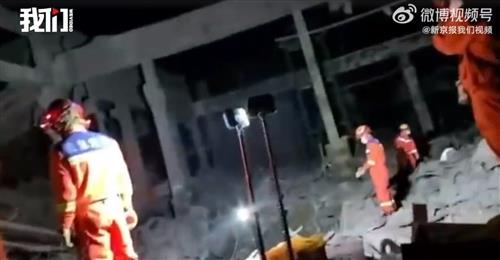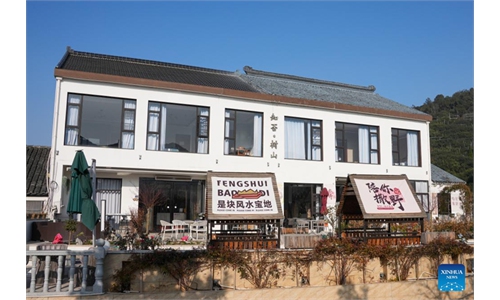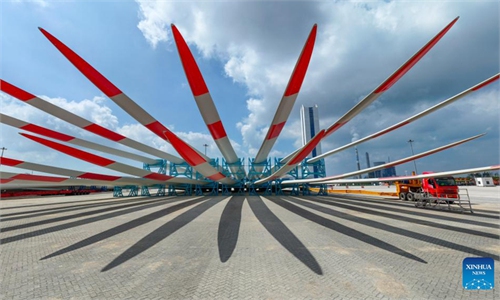IN-DEPTH / IN-DEPTH
Hometown witnesss: Jiangsu sets records in GDP, explores emerging industries with the strongest engine being people's industriousness, tenacity
Editor's Note:
The world recently celebrated a splendid Chinese New Year, welcoming the Year of the Dragon.
During the holidays, Global Times reporters returned to their hometowns where they were reacquainted with old traditions and introduced to new post-pandemic experiences. To share their experience, we have launched the "Hometown Diary" series. Spanning from north to south, east to west, six articles will focus on different provinces, exploring the development and evolution from traditional to modern, and from economic to cultural dimensions.
This series is not only a comprehensive review of China's vast territory and diverse regional cultures but also a profound reflection of how different areas across the country maintain their identity and embrace changes.
Through the lens of hometown observations, we hope to touch the hearts of our readers, allowing everyone to find resonance in these stories and feel the warmth and vitality that hometowns provide, regardless of changes brought about by time.
This is the second installment in the series, in which we gain the perspectives of our reporters to understand how East China's Jiangsu Province keeps vigorous development with a strong engine based on local people's industriousness and tenacity, and how East China's Anhui Province explores emerging areas of high tech and new energy.
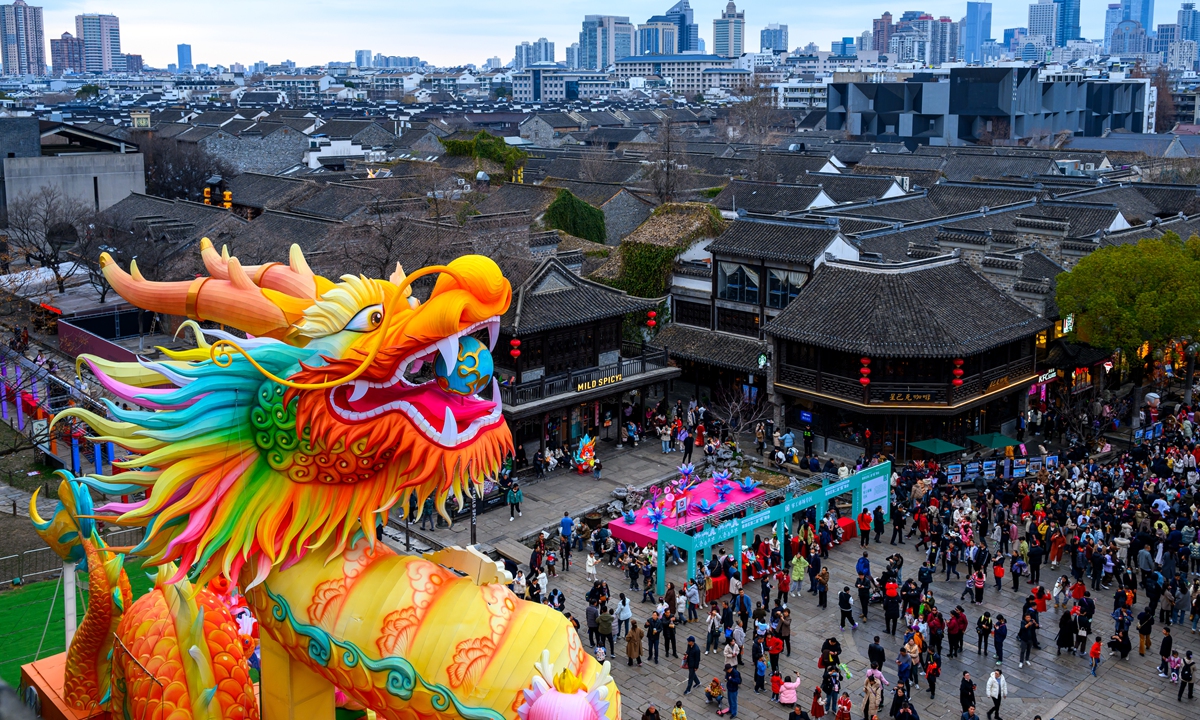
When I asked ChatGPT what characteristics Jiangsu people have, it gave me the following sentences:
▪ Jiangsu people are very hard-working; they care greatly about effort and pursue success;
▪ They are talented in business and have high commercial aptitude;
▪ They pay great attention to education and emphasize learning capacity cultivation and the knowledge development of their children;
▪ They are tough in the face of difficulties and challenges.
Hard-working people
The answer is pretty close to my own understanding of people from the province. In my 33 years, my parents constantly reiterated the surmountable nature of every challenge.
My 60-year-old father-in-law considers anyone getting up later than 7 am "lazy."
The eyes of my grandfather, 78, only light up when he is doing or talking about business. Otherwise, he has nothing to do but sits languidly on his chair, looking forlorn.
For a long time, I barely saw the good in this kind of characteristic, and rather saw it as constraining and boring. It gave me the impression that people in my hometown were robotic. Generation after generation, they follow the same routine, work in the same place, and employ the same form of hard work. If you were to ask them, "Why do you not find another way to live," they would probably say "This is how life works after all."
However, after 16 years away, and after experiencing and witnessing so many personal and global ups and downs, especially in recent years, I started to reflect on the consistent, hard-working, and resilient characteristics of Jiangsu people and suddenly began to understand the steadiness and power hidden in these qualities.
This strength is not only the province's vigorous development's vital source even in difficult times, but also, maybe, is the simplest kind of life force I lacked and have always been looking for.
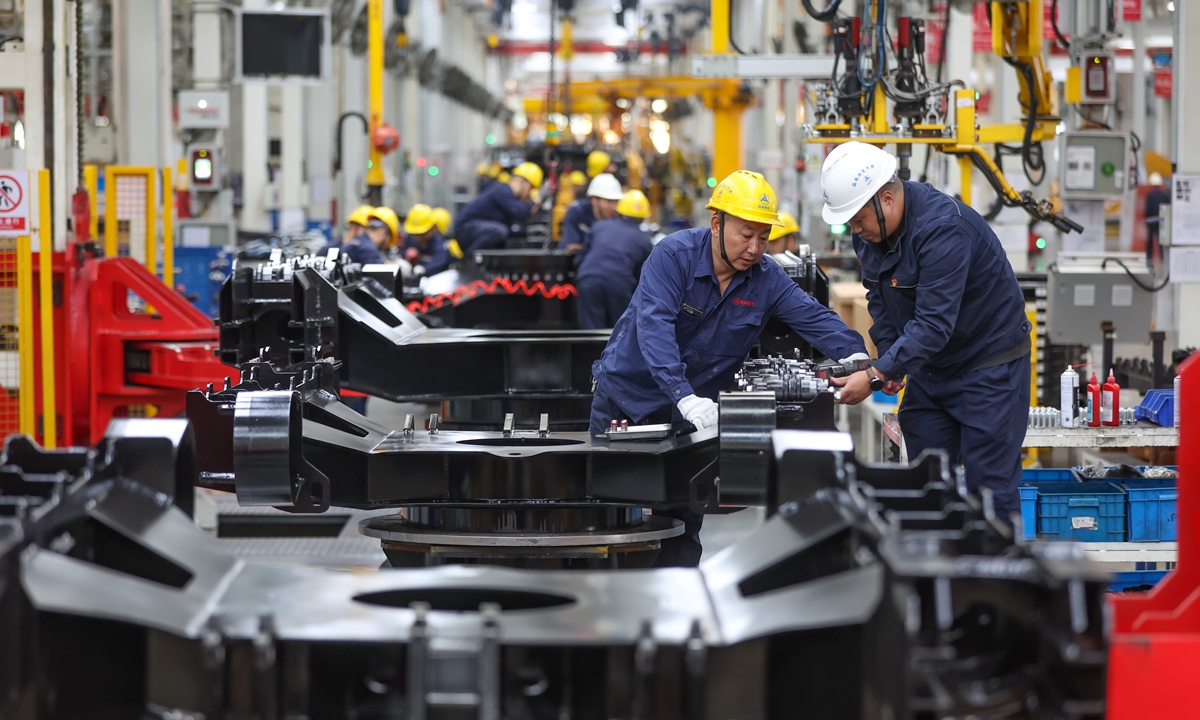
Vigorous development, continuous exploration
As a national economic powerhouse, East China's Jiangsu Province saw its regional gross domestic product (GDP) increase by 5.8 percent year-on-year to 12.82 trillion yuan ($1.8 trillion) in 2023, according to the annual session of the provincial people's congress in January. This figure means the province contributed the second-highest GDP in China in 2023 only following South China's Guangdong Province with 13.57 trillion yuan.
Apart from the impressive figures, Jiangsu people's undeniable business acumen plays a vital role in continuously pushing the province to explore new areas aligned with the demand of national strategies and the market.
In 2023, the output value of new energy vehicles (NEVs) and new energy industries in Jiangsu increased by 19 percent and 14.5 percent respectively. The production of lithium-ion batteries for automobiles increased by 18.7 percent. Monocrystalline silicon production increased by 31.6 percent, photovoltaic cell production increased by 45.6 percent, NEV production increased by 46.3 percent, wind power generator production increased by 66.4 percent, and charging pile production increased by 1.3 times, according to Xinhua.
The province discovered new growth points for foreign trade by expanding the trade of new types of home products and new energy products with countries associated with the Belt and Road Initiative (BRI). According to statistics from Nanjing Customs, in 2023, Jiangsu's imports and exports to these countries reached 2.25 trillion yuan, an increase of 0.9 percent, accounting for 42.9 percent of the country's total trade with these countries, Xinhua reported.
People in my hometown have also changed a lot during my absence, and in ways I had failed to notice.
My younger cousin Peter Zhou told me he probably would go overseas to work for a period as his company would start to open branches in many countries and regions around the world to achieve localization operations.
The young boy who once battled me for a bottle of orange soda had transformed into a company CEO.
The company he works for is Sunnix Energy, founded in 2010, a comprehensive company specializing in lithium-ion battery products, energy storage systems and photovoltaic solar systems.
In 2023, the company achieved sales of more than 240 million yuan, more than double the figure in 2022.
More than 90 percent of our company's sales come from overseas, with the Philippines, South Africa and the Middle East being the main markets, Zhou told me.
Unite to be 'Su Daqiang'
Jiangsu has two nicknames on Chinese social media: Sanzhuang Jiangsu (loosely organized Jiangsu) and Su Daqiang (Su is a Chinese surname, Da means great and Qiang means strong in Chinese).
The second nickname is because of its strong economy. The first is because, while other provinces and regions in China usually act as a whole on a national level, the 13 cities in Jiangsu act separately. A typical example is they all sent their own medical support teams to Wuhan, Hubei Province in early 2020 at the start of the COVID-19 pandemic, while most other places only sent a provincial team.
Chinese netizens always make the joke that Jiangsu is loosely organized. But they also wonder how such a province holds so much energy for development.
My recent reflections may provide an answer: Jiangsu is loosely organized not because its 13 cities do not like each other or do not obey the orders of big brother Nanjing, the capital, but because they are blood brothers who are all hard-working and strong respectively so that they always compete and do not want to be the one "holding back the family" on the way of development.
An example before the Spring Festival made more people come to know the unity of Jiangsu hidden in its loose organization. Heavy snow hit central and northern Jiangsu between February 1 and 6, sparking concerns among those wishing to drive through Jiangsu's highways.
However, as they set off on their return journeys, more and more people took to social media platforms to express their amazement as they found Jingsu's highways cleared overnight.
As of February 5 morning, 57,000 personnel had been dispatched to remove snow on highways across the province with snow-removal machines working 6,759 times and snow-melting materials being dispersed, covering 41,000 kilometers of roadworks, the Jiangsu Provincial Government announced.
"This efficiency explains why it is called Su Daqiang," a netizen commented.
"We are loose in ordinary times, but we set to unite and get serious in the face of major matters," a Jiangsu netizen said, and I could not agree more.
The world recently celebrated a splendid Chinese New Year, welcoming the Year of the Dragon.
During the holidays, Global Times reporters returned to their hometowns where they were reacquainted with old traditions and introduced to new post-pandemic experiences. To share their experience, we have launched the "Hometown Diary" series. Spanning from north to south, east to west, six articles will focus on different provinces, exploring the development and evolution from traditional to modern, and from economic to cultural dimensions.
This series is not only a comprehensive review of China's vast territory and diverse regional cultures but also a profound reflection of how different areas across the country maintain their identity and embrace changes.
Through the lens of hometown observations, we hope to touch the hearts of our readers, allowing everyone to find resonance in these stories and feel the warmth and vitality that hometowns provide, regardless of changes brought about by time.
This is the second installment in the series, in which we gain the perspectives of our reporters to understand how East China's Jiangsu Province keeps vigorous development with a strong engine based on local people's industriousness and tenacity, and how East China's Anhui Province explores emerging areas of high tech and new energy.

People flood to visit a 14-meter high dragon lantern displayed at the Zhonghua Gate in Nanjing, East China's Jiangsu Province, on February 17, 2024. Photo: VCG
When I asked ChatGPT what characteristics Jiangsu people have, it gave me the following sentences:
▪ Jiangsu people are very hard-working; they care greatly about effort and pursue success;
▪ They are talented in business and have high commercial aptitude;
▪ They pay great attention to education and emphasize learning capacity cultivation and the knowledge development of their children;
▪ They are tough in the face of difficulties and challenges.
Hard-working people
The answer is pretty close to my own understanding of people from the province. In my 33 years, my parents constantly reiterated the surmountable nature of every challenge.
My 60-year-old father-in-law considers anyone getting up later than 7 am "lazy."
The eyes of my grandfather, 78, only light up when he is doing or talking about business. Otherwise, he has nothing to do but sits languidly on his chair, looking forlorn.
For a long time, I barely saw the good in this kind of characteristic, and rather saw it as constraining and boring. It gave me the impression that people in my hometown were robotic. Generation after generation, they follow the same routine, work in the same place, and employ the same form of hard work. If you were to ask them, "Why do you not find another way to live," they would probably say "This is how life works after all."
However, after 16 years away, and after experiencing and witnessing so many personal and global ups and downs, especially in recent years, I started to reflect on the consistent, hard-working, and resilient characteristics of Jiangsu people and suddenly began to understand the steadiness and power hidden in these qualities.
This strength is not only the province's vigorous development's vital source even in difficult times, but also, maybe, is the simplest kind of life force I lacked and have always been looking for.

Workers are busy with production in a company in Suzhou, Jiangsu, on October 23, 2023. Photo: VCG
Vigorous development, continuous exploration
As a national economic powerhouse, East China's Jiangsu Province saw its regional gross domestic product (GDP) increase by 5.8 percent year-on-year to 12.82 trillion yuan ($1.8 trillion) in 2023, according to the annual session of the provincial people's congress in January. This figure means the province contributed the second-highest GDP in China in 2023 only following South China's Guangdong Province with 13.57 trillion yuan.
Apart from the impressive figures, Jiangsu people's undeniable business acumen plays a vital role in continuously pushing the province to explore new areas aligned with the demand of national strategies and the market.
In 2023, the output value of new energy vehicles (NEVs) and new energy industries in Jiangsu increased by 19 percent and 14.5 percent respectively. The production of lithium-ion batteries for automobiles increased by 18.7 percent. Monocrystalline silicon production increased by 31.6 percent, photovoltaic cell production increased by 45.6 percent, NEV production increased by 46.3 percent, wind power generator production increased by 66.4 percent, and charging pile production increased by 1.3 times, according to Xinhua.
The province discovered new growth points for foreign trade by expanding the trade of new types of home products and new energy products with countries associated with the Belt and Road Initiative (BRI). According to statistics from Nanjing Customs, in 2023, Jiangsu's imports and exports to these countries reached 2.25 trillion yuan, an increase of 0.9 percent, accounting for 42.9 percent of the country's total trade with these countries, Xinhua reported.
People in my hometown have also changed a lot during my absence, and in ways I had failed to notice.
My younger cousin Peter Zhou told me he probably would go overseas to work for a period as his company would start to open branches in many countries and regions around the world to achieve localization operations.
The young boy who once battled me for a bottle of orange soda had transformed into a company CEO.
The company he works for is Sunnix Energy, founded in 2010, a comprehensive company specializing in lithium-ion battery products, energy storage systems and photovoltaic solar systems.
In 2023, the company achieved sales of more than 240 million yuan, more than double the figure in 2022.
More than 90 percent of our company's sales come from overseas, with the Philippines, South Africa and the Middle East being the main markets, Zhou told me.
Unite to be 'Su Daqiang'
Jiangsu has two nicknames on Chinese social media: Sanzhuang Jiangsu (loosely organized Jiangsu) and Su Daqiang (Su is a Chinese surname, Da means great and Qiang means strong in Chinese).
The second nickname is because of its strong economy. The first is because, while other provinces and regions in China usually act as a whole on a national level, the 13 cities in Jiangsu act separately. A typical example is they all sent their own medical support teams to Wuhan, Hubei Province in early 2020 at the start of the COVID-19 pandemic, while most other places only sent a provincial team.
Chinese netizens always make the joke that Jiangsu is loosely organized. But they also wonder how such a province holds so much energy for development.
My recent reflections may provide an answer: Jiangsu is loosely organized not because its 13 cities do not like each other or do not obey the orders of big brother Nanjing, the capital, but because they are blood brothers who are all hard-working and strong respectively so that they always compete and do not want to be the one "holding back the family" on the way of development.
An example before the Spring Festival made more people come to know the unity of Jiangsu hidden in its loose organization. Heavy snow hit central and northern Jiangsu between February 1 and 6, sparking concerns among those wishing to drive through Jiangsu's highways.
However, as they set off on their return journeys, more and more people took to social media platforms to express their amazement as they found Jingsu's highways cleared overnight.
As of February 5 morning, 57,000 personnel had been dispatched to remove snow on highways across the province with snow-removal machines working 6,759 times and snow-melting materials being dispersed, covering 41,000 kilometers of roadworks, the Jiangsu Provincial Government announced.
"This efficiency explains why it is called Su Daqiang," a netizen commented.
"We are loose in ordinary times, but we set to unite and get serious in the face of major matters," a Jiangsu netizen said, and I could not agree more.
